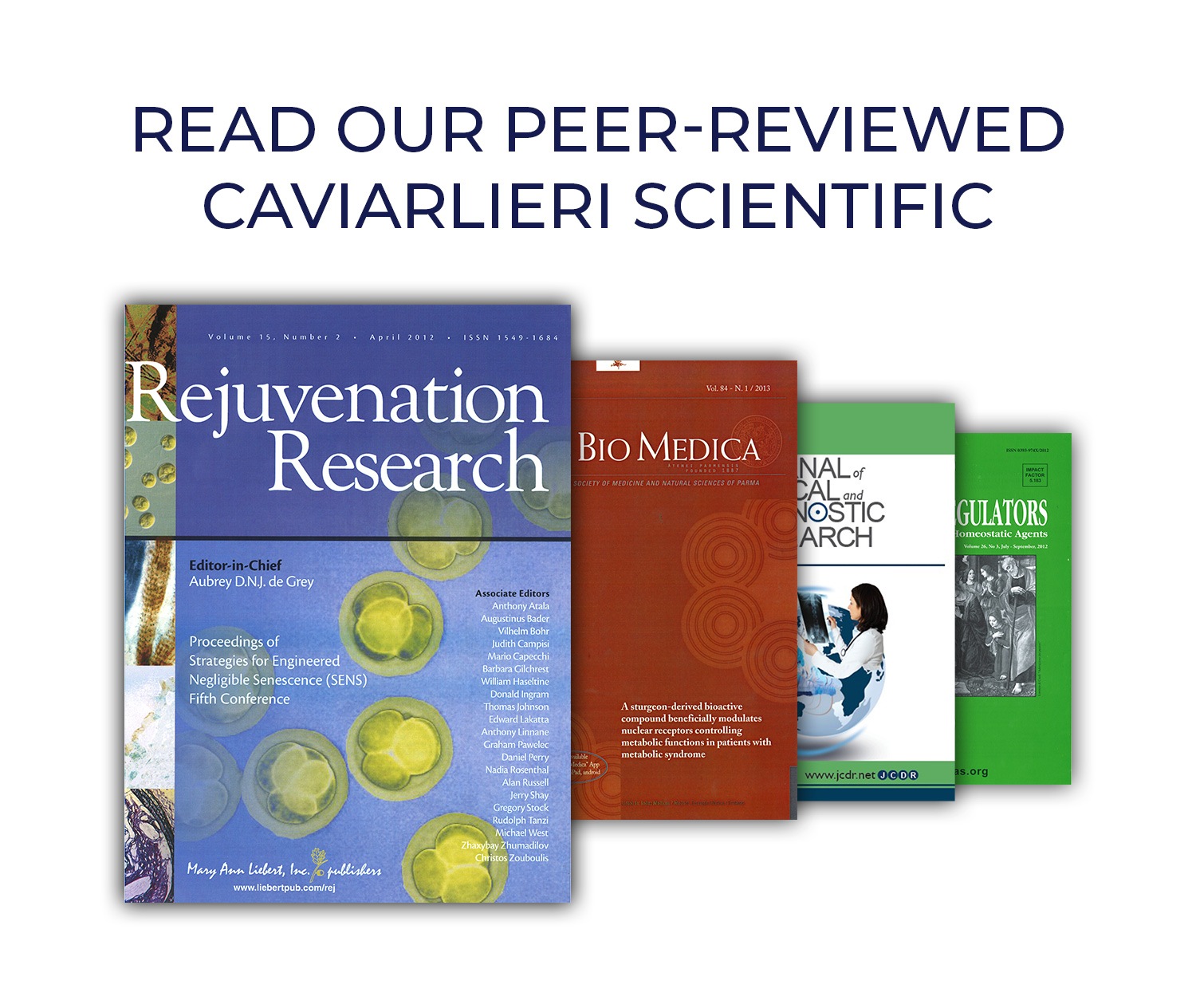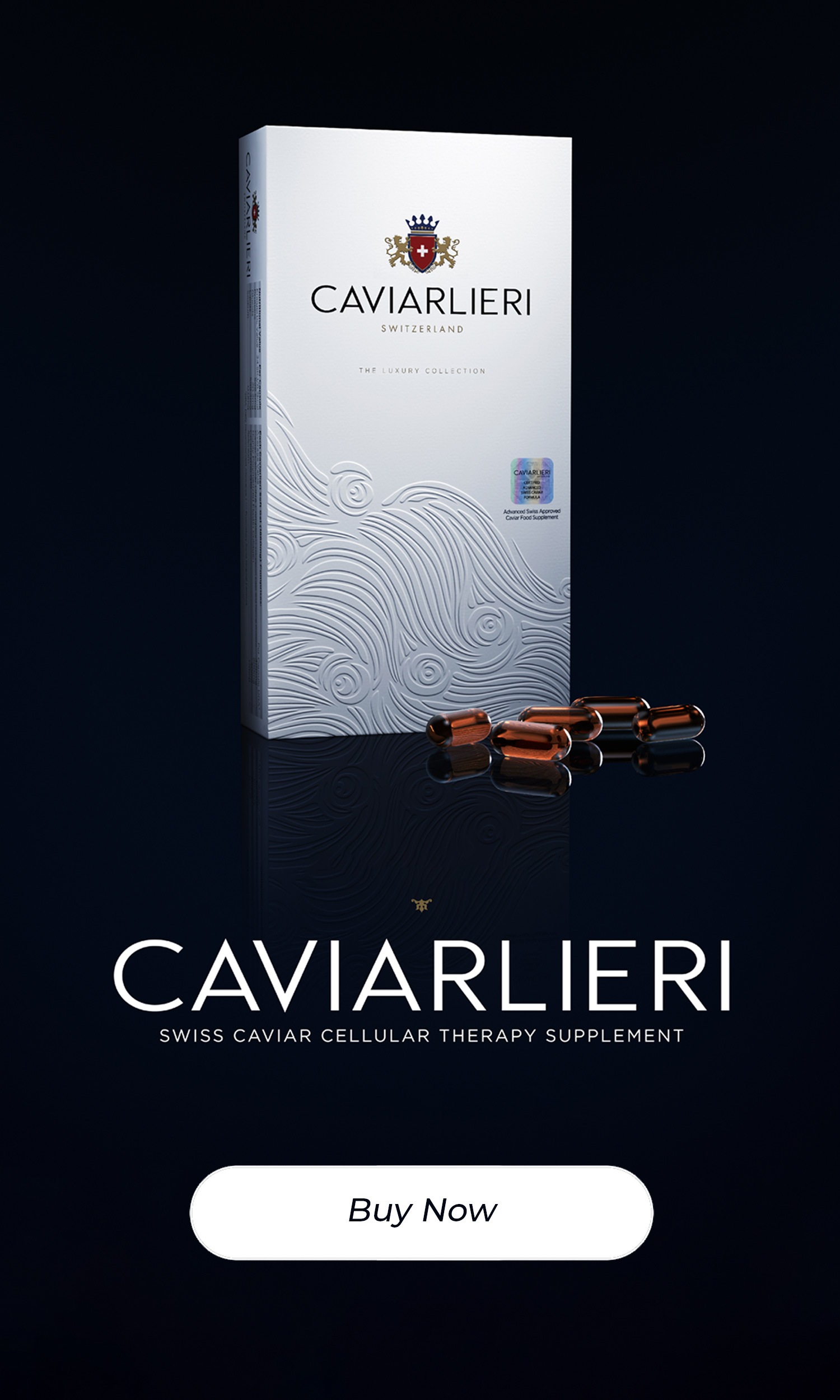Swiss Caviarlieri – More Than a Beauty Treatment (Beauty from the Inside Out)
Caviarlieri | Published December 25, 2019
When talking about anti-aging, it is hard not to think of it apart from beauty products. But little do we know that aging does not just affect your visible appearance. Aging is everywhere in your entire body – more so in the cells. There are other numerous set of conditions that come as time passes us by. Aging happens to everyone, it can even happen to those who are actually still young! Sometimes, your actual age maybe X, but your body age can be Y. The biomarkers identifying your age depends on your health, age, and lifestyle. For example, a substance abuse individual may be 35, but due to the damage in his cells caused by his poor choice of lifestyle aged his body to 45. Therefore, there is more to aging than we know, as there is more to anti-aging than we have thought.
Almost everyone’s goal in life is to be successful in their profession and career. It is seldom one’s goal to live a fruitful life but at the same time care for the longevity of their body. There is nothing wrong with aiming for success in different ways, but not to the extent of also growing old fast because of neglect. Health and well-being are usually the aspects that are sacrificed in achieving goals. What good is a life of fulfilled dreams yet the body is suffering? Aging gracefully should go hand in hand with working hard for one’s goals. Aging is inevitable, wrinkles, grey hair and all. But that is just the outward appearance. And it does not always translate to weakness and poor health. Despite the increase in numbers of our age, there are measures to cope with the aging process. One can still be physically active and strong and only enjoy life to the fullest through achieving optimal health.
Physically
The process of aging has so many effects on the human body and the human mind. Once the first signs of aging sets in, people feel the effects bit by bit even with the minute changes such as dulling skin, periodical weakness, achy joints and many others. The changes that the body goes through sets limits on our daily activities, that includes the recreational and leisure aspect.
We all want to be able to continue to be the person we are, doing what we love to do, excel at work, enjoy seeing the world and be able to still engage in our hobbies. Even as the body grows old, it is also through our body that we are able to push back and delay these effects. For example, a physically active lifestyle recognizes that even as we grow old, we want to still be independent, we can move around on our own and we still have control over our bodies.
Mentally
Subtly, aging affects our mental health which in turn affects us physically. There are two common ways it speeds up aging. First, the brain is the most powerful organ and it dictates how we feel and how we perceive things. When we think that we have deteriorated, the body does what it thinks. Being mentally healthy not only takes care of the physiologic aspect but keeps in check our emotions and outlook in life to stay above the potentially destructive depression, social phobias and many more. Second is acknowledging that with aging, memory, speech and mental alertness fades.
Given those facts, how do we really deal with aging? Everyone wishes that they could turn back time. Many people might splurge on a race car to feel that adrenaline rushing through their veins. Some people might approach it more realistically by living a healthier life, exercise more, and even find different medical methods in delaying the clock. A lot of those may be effective but only for a short time. The emergence of anti-aging products is a lesser known route with some stigma even. But it is a gift to humanity, especially those that work from the inside out. It starts at the basic unit of life which is the cells. Cellular therapy is more than just a beauty treatment as it reinvigorates our body as a whole, more than just our skin. It is the process of reversing and delaying the impact of aging cells by renewing and repairing them. Cellular therapy usually comes in the form of injectables. New technology has created an oral supplement. Caviarlieri is a preventative healthcare Caviar derived Cellular Therapy Supplement manufactured using Swiss Proprietary Cold Extraction Technology, “Cellularix.” Caviarlieri is a powerful non injectable Swiss Cell Therapy Treatment that stimulates the body to rejuvenate itself. Caviarlieri (caviar supplement) has a multitude of benefits that can be experience with regular intake.
- Significantly increasing cellular energy
- Caviarlieri improves one’s vitality and prolongs stamina for a more energetic and active life.
- Managing Joint pain
- In case studies, there is a noticeable reduction in joint pain in conditions of Osteoarthritis, Rheumatoid Arthritis, and Fibromyalgia.
- Enhancing the brain
- Caviarlieri’s ingredients prevents memory loss, and boosts mental focus and overall mental health.
- Improving quality of sleep
- It has effects on one’s mood, which helps to be able to relax more effectively and sleep better.
- Alleviating metabolic syndrome
- The high purity of marine peptides can help control blood sugar, blood pressure and thus preventing diseases caused by these.
- Aiding Sexual performance
- Caviarlieri enhances stamina, sexual libido, and improve sperm quality.
- Strengthening the skin
- Caviarlieri contains marine collagen and elastin plus, which help reduce the visible signs of aging. It hydrates and moisturizes your skin, making it have that youthful glow.
- Having potent anti-inflammatory properties
- Caviarlieri’s bioactive components significantly decelerates the process of cellular aging and prevents the development of degenerative diseases.
Scientific studies have been made proving the benefits from Caviarlieri. PubMed, Journal of Biological Regulators and Homeostatic Agents, and Acta Bio Medica Official Journal of the Society of Medicine and Natural Sciences of Parma are a few of the publications that have testified of its efficacy. These are their reports on Caviarlieri (caviar supplement) and its ingredients:
- Marine collagen has significant effect on Stress-Induced Hippocampal Degeneration
- Sturgeon-derived Bioactive peptides (marine collagen) beneficially modulates the metabolic functions
- Beneficial Effect of a Sturgeon-Based Bioactive Compound on Gene Expression of Tumor Necrosis Factor-alpha Matrix Metalloproteinases – a substance in our body that causes inflammation during the acute phase.
- A study about marine peptides on osteoarthritis patients and its effectiveness to lower inflammation
- Marine compound improves the quality of sperm count and Spermatogenesis
- A high purity Caviar is remarkably beneficial to chronological skin aging
An independent research result that should be highlighted is that Caviarlieri is very effective in the modulation of Substance P levels. Substance P is a pain stimuli chemical found in the brain. Substance P is connected to pain perception, emotional behavior, stress, nausea and vomiting, smooth muscle contraction, saliva production, wound healing, memory, blood cell formation, allergy,and inflammation.
What happens if the levels are elevated? Substance P levels are increased in stressful or anxiety-inducing situations. The amount that is released all depends on the frequency and intensity of the stimulation. Even though substance P is not all bad, but when elevated it causes stress, anxiety, and depression. It may also contribute in Fibromyalgia (a long term condition that causes pain throughout the body,) may be a factor in Arthritis (as it inflams the tissues,) and may cause cancer cell growth (as tumor cells have a high traces of substance P.) All of this is connected to substance P due to its role in inflammation.
On the other hand, conditions associated with low substance P are Alzheimer’s (as it improves our learning and memory abilities) and Type 1 Diabetes.
Therefore, it can be said that Caviarlieri is a potent anti-inflammatory agent for joint pain, fibromyalgia, and pain management. Further studies will prove that Caviarlieri will demonstrate the reduction of onset or progression of inflammation related diseases. Examples of inflammation related diseases are asthma, hay fever, tuberculosis, rheumatoid arthritis, atherosclerosis, and some cancer.All these benefits are now possible through a soft gel supplement. It is undeniable that Caviarlieri is more than just the usual beauty product. It was formulated with an understanding of all the factors that contribute to aging the healthy way. It is a perfect fit for anyone who desires to age gracefully, retain that youthful glow and live life to the fullest. Quality of life always means quality of health.
Subject
Recent Posts
-
The Amazing Benefits of Highly Polymerized Fish Collagen Peptides with Elastin – Caviarlieri
-
The World’s Most Effective Caviar DNA Extract with Marine Bioactive Peptides
-
Are Supplements effective for Joint Pain?
-
Why Is Sustainable Immunity Important for Your Long-Term Health
-
What is your “Body Age” – Biological Age?




